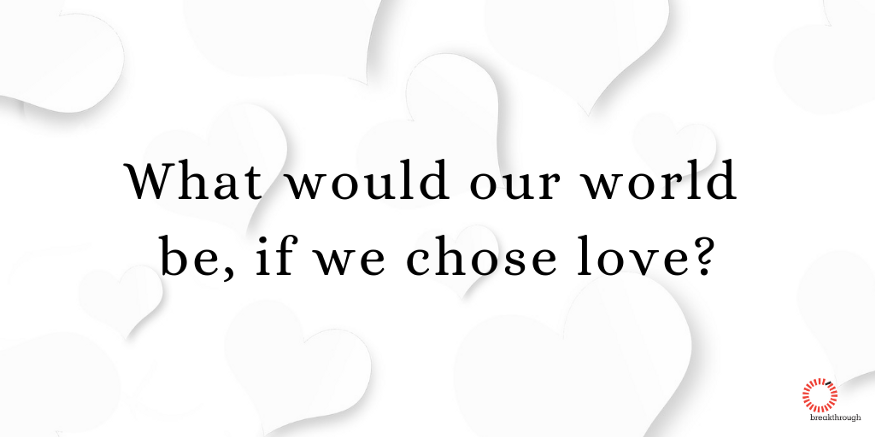
Love is Our Most Radical Choice
Reimagining Love as a Political Force this Valentine’s Day

What would our world be, if we chose love?
It’s easy to dismiss Valentine’s Day. Its capitalist drive and its focus on monogamist, heterosexual romantic love can be tiresome and archaic.
But the one thing that we can’t dismiss, now more than ever, is love. And that’s because to love is to simultaneously exist in our most natural and our most radical states.
Have you taken care of a friend — or a stranger — in need, even if they didn’t ask? That’s love.
Have you joined a movement or a cause? That’s love.
Have you sent that text, asked for that promotion, or even just recycled that can? That, too, is love.
#LoveWins has become an almost trite hashtag in recent years, often stripped of context and agency. Make no mistake — love wins when we choose to let everything else lose to it. Love wins because, too often, we have to constantly fight to ensure that everything else loses to it.
What would it mean to choose to love each other?
Loving one another means showing up for our community members. Loving one another means shouting when you can, and staying silent when you must. Loving one another means uplifting triumphs and learning from failures.
There is an unfortunate notion that love makes us boring at least, and irrational at worst. That to be successful lawmakers, or businesspeople, or doctors, or creatives, we must be devoid of love — indeed, devoid of all sentiment, lest we make the “wrong” decisions.
But what would our world look like if all work was rooted in love? If, for example, doctors centered trauma-informed care, would the pain of women be taken seriously? Would the death rate of Black mothers in childbirth plummet? Would this remove the stigma of medication, therapy, and mental health care?
And what would our world look like if we refused to hierarchize love? If we expressed platonic love as loudly and openly as we express romantic love? If we prioritized love in all its forms, not just one?
Loving another is telling them, I see you for who you really are. It’s a scary suggestion, and becomes even scarier when we’re asked to truly see ourselves.
What would it mean to choose to love ourselves?
There’s a difference between self-care — an endeavor that’s become as commodified as Valentine’s Day — and self-love.
Self-love is loud. Self-love is saying yes to fear and saying no to doubt. Self-love is accepting what we need.
And isn’t that our obstacle? Accepting that we need? How embarrassing, to need. “I want you.” “I can’t.” “I need help.” Why do we see these statements as failures? The real failure is in denying these essential needs. Denying, hiding, and stifling ourselves has led to our current world, a world dominated by toxic habits, abuses of power, and emotional negligence. And we need to dream up a new world.
— — — —
All our man-made, pun-intended phrases are meant to make us subordinate to the power of love, as if it’s a force that is out of our control. We “fall” in love. We are “swept up” by love. We “give ourselves over” to love. And when our love is rejected, our first instinct is often to reject our own expression of that love in response. “Why bother?” “What do I get out of it?” “It only makes me weak.”
And to that I say, let’s be weak. If the weakness of love means our world becomes one of shared power, shared opportunity, and shared goals, then let’s be weak.
